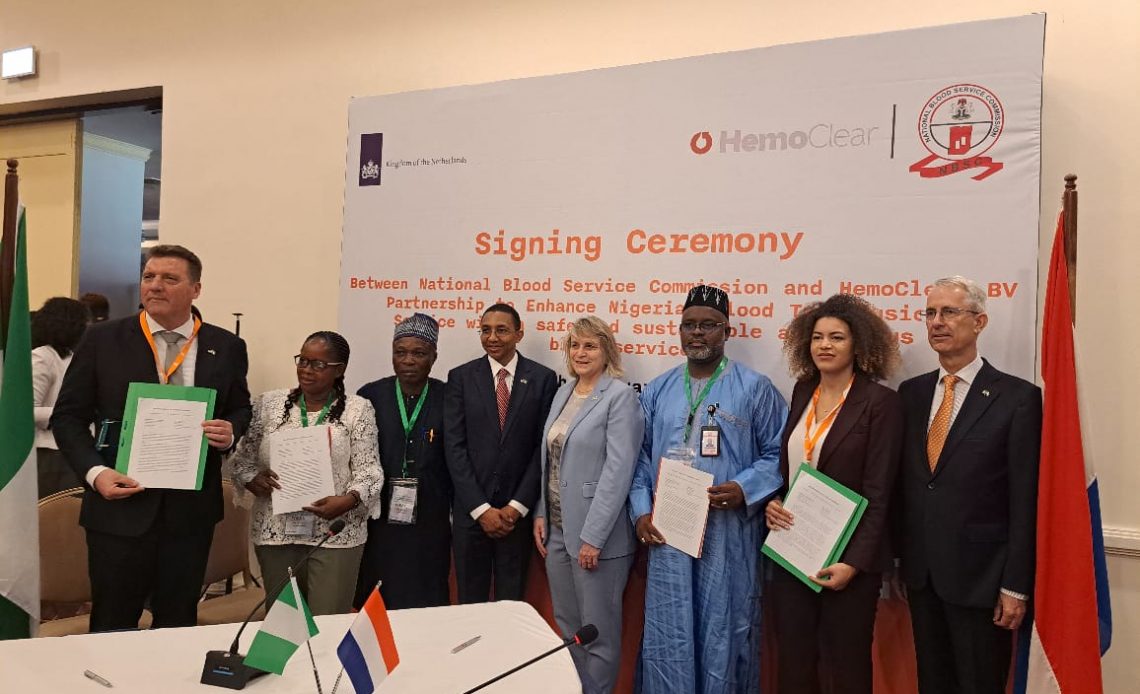In a significant move towards improving global healthcare, the National Blood Service Commission (NBSC) of Nigeria and Netherlands-based HemoClear B.V. are pleased to announce a strategic partnership. This alliance is set to introduce autologous (patient-own) blood transfusion services, addressing the critical issue of blood shortages leading to unnecessary suffering and death. Illustrating the gravity of this issue, severe bleeding (postpartum hemorrhage) after childbirth is one of the major causes of maternal mortality worldwide, and is a significant contributing factor in the deaths of some 200,000 women a year in sub-Saharan Africa.
The challenge of implementing autologous blood transfusions, a common practice in wealthier nations, often faces considerable hurdles in regions with limited resources, primarily due to the sophisticated nature of existing autologous blood processing equipment. This alliance aims to overcome such barriers by introducing HemoClear’s pioneering micro-filtration technology that facilitates the collection and processing of a patient’s own blood during surgery, transforming it into safe, transfusion-ready blood without the need for additional machinery or power sources.
This historic partnership was solidified by the signing an agreement during the inaugural Dutch trade mission to Nigeria in attendance of Ms. Marjolijn Sonnema, the Dutch Vice Minister for Public Health and Dr. Abdu Mukhtar National Coordinator of the Presidential Unlocking Healthcare Value-Chain Initiative, representing Professor Muhammad Ali Pate, the Nigerian Coordinating Minister of Health and Social Welfare.
The Coordinating Minister further stated that the key objective of the partnership to initiate a sustainable autologous blood service, resonates with the vision of His Excellency, President Bola Ahmed Tinubu to establish a coordinated blood ecosystem. “This [partnership] aligns with the National Health Plan and the Presidential initiative to unlock the health sector value chain and encourage private sector participation. We expect that this will help boost synergy for blood value chain optimization and increase blood supply quality and efficiencies thereby reducing pains and saving Nigerian lives.”
As Professor Saleh Yuguda, Director General NBSC explains, “Incorporating autologous transfusions will significantly mitigate blood shortages in critical situations, enabling us to reserve donated blood for treating conditions like sickle cell anemia and cancer.”
Vincent Franssen, CEO of HemoClear, expressed his enthusiasm for the collaboration, “Partnering with the NBSC, a regional leader in blood service expertise, guarantees streamlined implementation support, offers premier clinical training and logistics know-how, and sets the stage for future local production.”
Both the NBSC and HemoClear underscore the importance of continued blood donations, as autologous transfusions are not universally applicable. Donated blood and its components will remain crucial in various cases where autologous blood is not a treatment option.
The NBCS/HemoClear alliance is financially supported by the French Fund for Innovation in Development (FID), reinforcing the commitment to global health improvements.



There is certainly a lot to learn about this topic.
I really like all of the points you made.